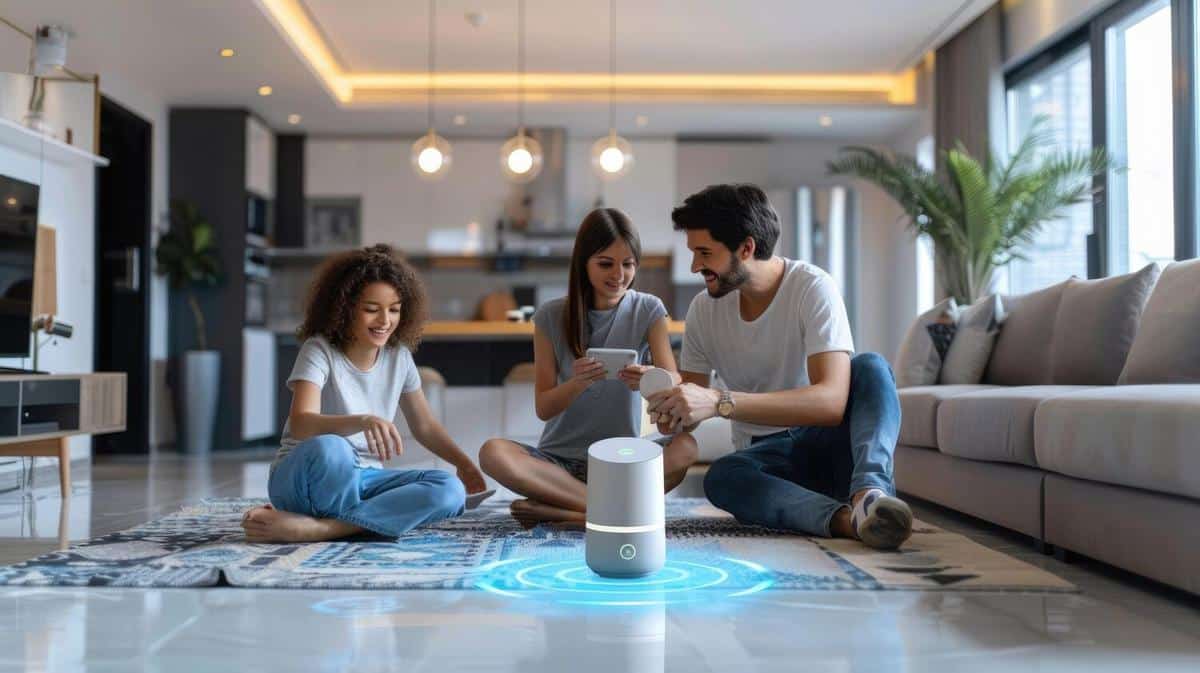
The Future of Smart Homes: Trends to Watch in 2024
Imagine walking into a home that anticipates your needs, adjusts to your preferences, and seamlessly integrates technology into your daily life. This is not a scene from a sci-fi movie but the reality of smart homes, which are evolving rapidly. As we look towards 2024, several trends are set to redefine how we interact with our living spaces.
The future of smart homes is a topic of much excitement and anticipation. Here, we will explore some of the most promising trends set to transform our homes in 2024.
Integration of AI and IoT
Artificial Intelligence (AI) and the Internet of Things (IoT) are at the heart of many smart home advancements. According to a recent report by Statista, the number of IoT devices is expected to reach over 75 billion by 2025. This integration allows for more personalized and efficient home management. Smart thermostats, for instance, learn your schedule and adjust temperatures accordingly, saving energy and reducing bills.
Voice-Activated Control
Voice assistants have become household staples, and their capabilities are expanding. They not only control smart devices but also provide information, entertainment, and even companionship. The convenience of hands-free operation is a significant driver of this trend. A survey by Pew Research Center found that nearly 60% of smart speaker owners use their devices daily, highlighting their growing importance in everyday life.
Enhanced Security Features
With increasing concerns about privacy and safety, smart home security is evolving. Features such as facial recognition cameras, smart locks, and even drones for outdoor surveillance are becoming more common. These technologies provide peace of mind by allowing homeowners to monitor their property remotely.
Energy Efficiency
As environmental awareness grows, energy-efficient smart homes are gaining traction. Devices that monitor and optimize energy use are not only good for the planet but also help reduce costs. The adoption of smart meters is a prime example, with the U.S. Department of Energy reporting a significant reduction in energy consumption where these are installed.
Smart Kitchens
The kitchen is becoming a hub of innovation. Smart appliances, such as refrigerators that track food inventory and suggest recipes, are changing the way we cook and plan meals. This not only adds convenience but also helps reduce food waste, aligning with sustainability goals.
| Trend | Impact |
|---|---|
| AI and IoT Integration | Personalization and efficiency |
| Voice-Activated Control | Convenience and accessibility |
| Enhanced Security | Increased safety |
| Energy Efficiency | Cost and environmental savings |
| Smart Kitchens | Convenience and reduced waste |
| Health Monitoring | Improved well-being |
| Augmented Reality | Immersive experiences |
| 5G Connectivity | Faster and reliable connections |
Health Monitoring
Smart homes are increasingly incorporating health monitoring features. Devices that track air quality, sleep patterns, and even vital signs ensure that your home contributes to your overall well-being. This trend is particularly beneficial for the elderly and those with medical conditions.
Augmented Reality and Virtual Reality
Augmented Reality (AR) and Virtual Reality (VR) are poised to revolutionize how we design and interact with our homes. Imagine trying out a new furniture arrangement without moving a single piece, or virtually visiting a new home before buying. These technologies offer immersive experiences that enhance decision-making and creativity.
5G Connectivity
The rollout of 5G networks promises to boost smart home technology by providing faster and more reliable internet connections. This means improved performance for all connected devices, from streaming services to security systems.
Consider investing in a smart home hub to manage all your devices from a single point. This centralizes control and simplifies the user experience.
FAQs
What are the benefits of smart home technology?
Smart home technology offers convenience, energy savings, enhanced security, and improved quality of life through automation and personalization.
Are smart homes secure?
While smart homes offer enhanced security features, it is essential to use secure passwords and keep software updated to protect against cyber threats.
How does AI enhance smart homes?
AI enables smart homes to learn user preferences, automate tasks, and improve efficiency, making daily life more convenient.
Conclusion
The future of smart homes is bright and full of potential. As technology continues to evolve, our homes will become more intuitive and responsive to our needs. By staying informed about these trends, you can make smart choices for your home that enhance your lifestyle and contribute to a more sustainable future.
For more insights and updates on smart home technology, visit our smart home portal.


